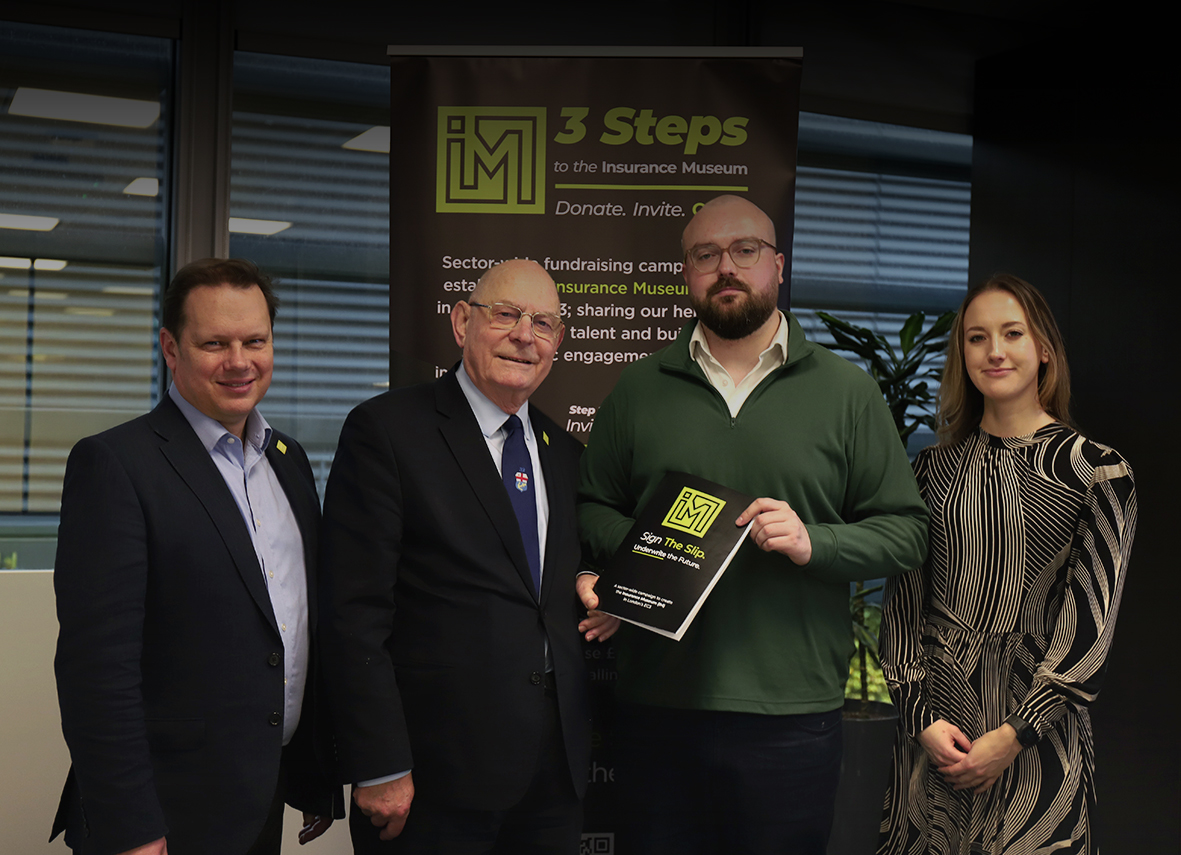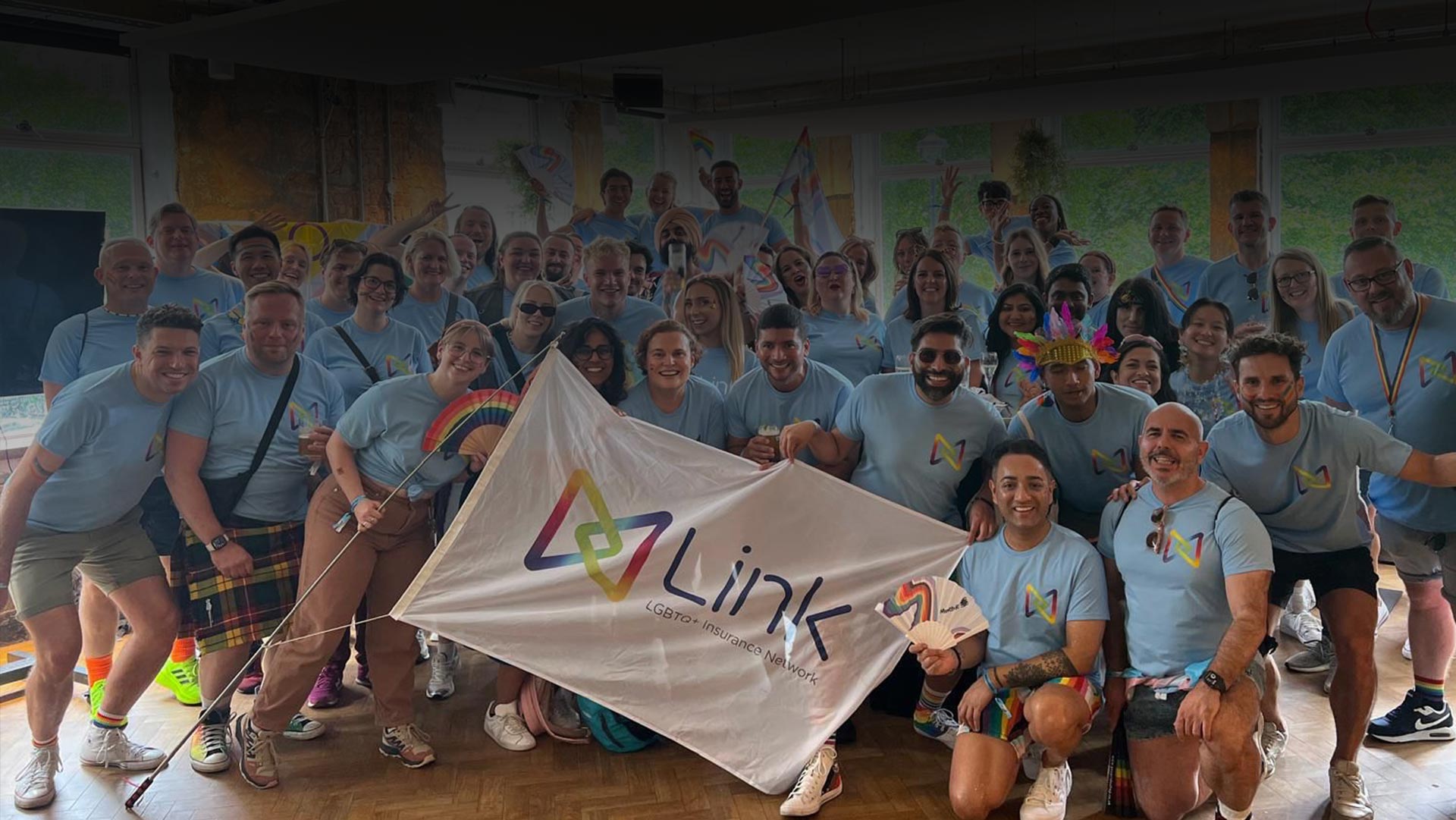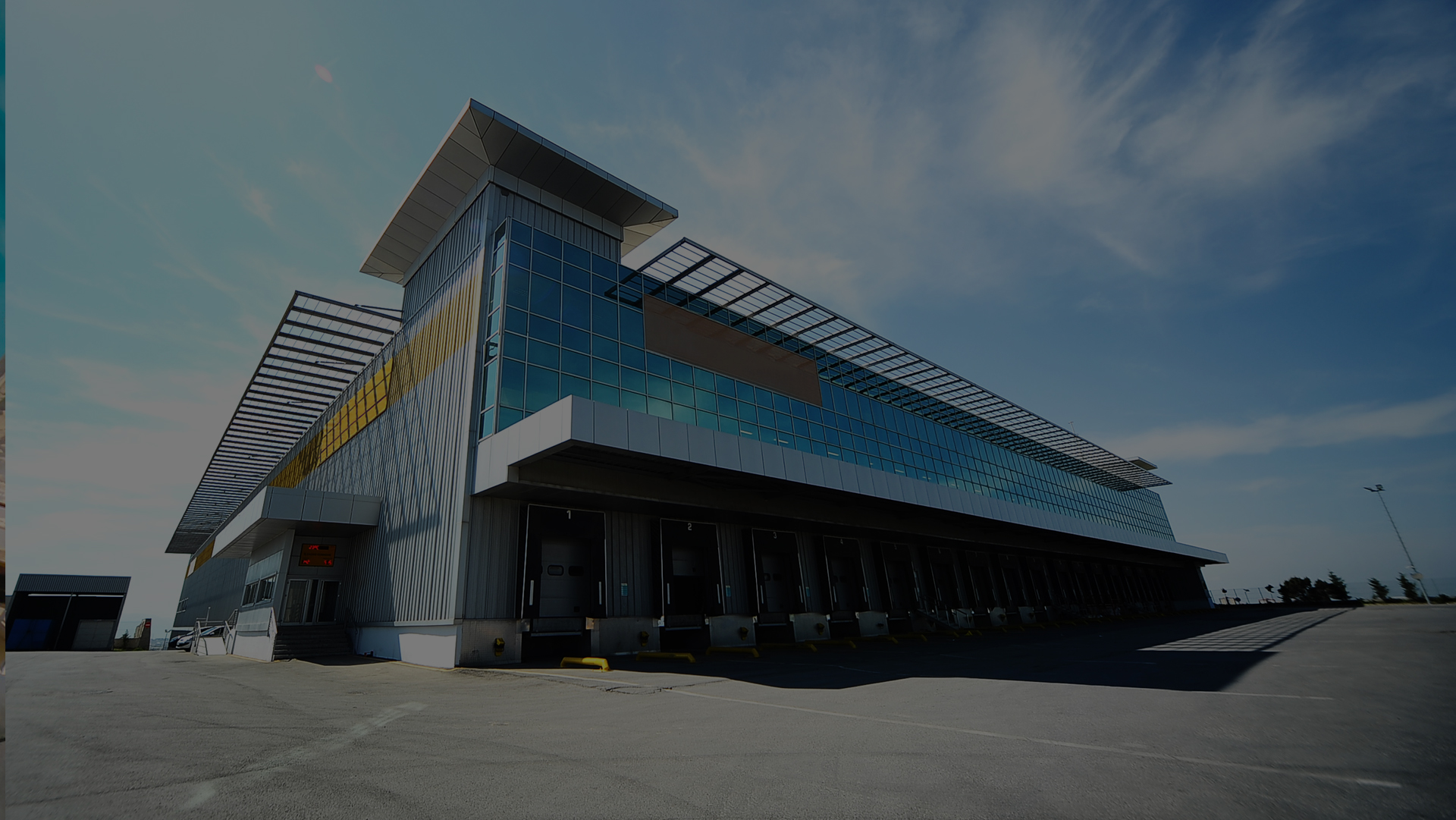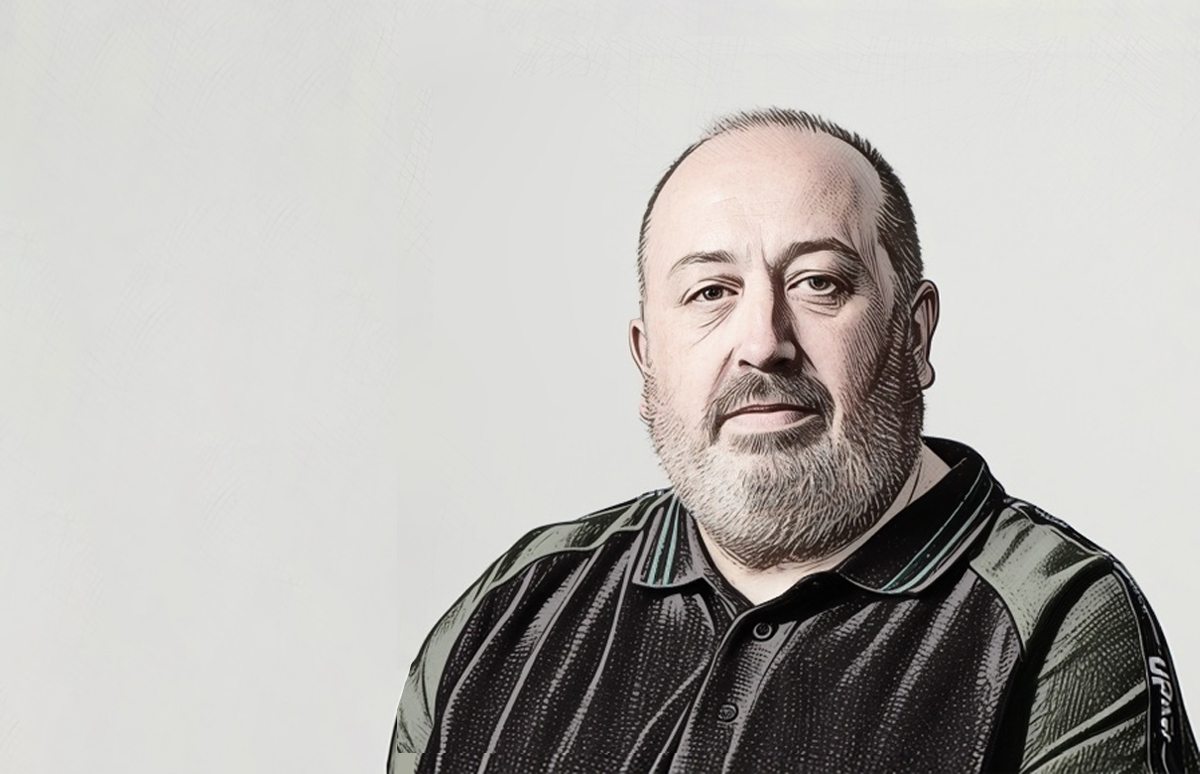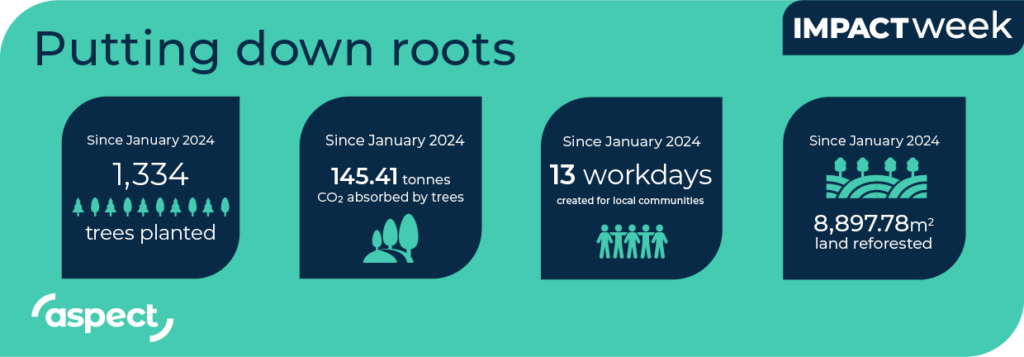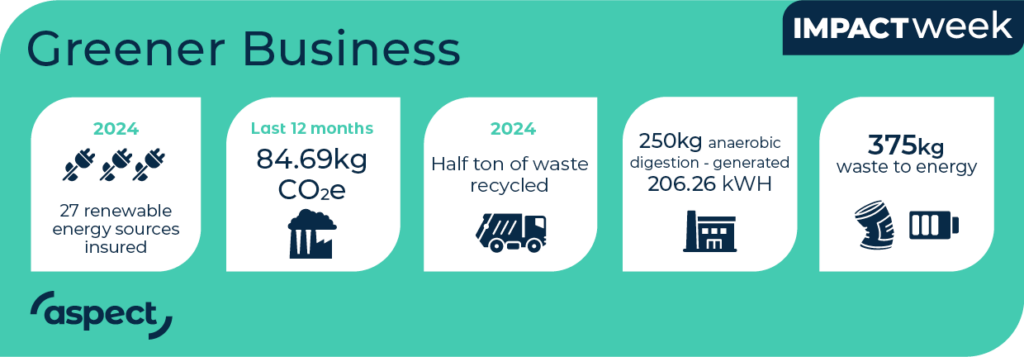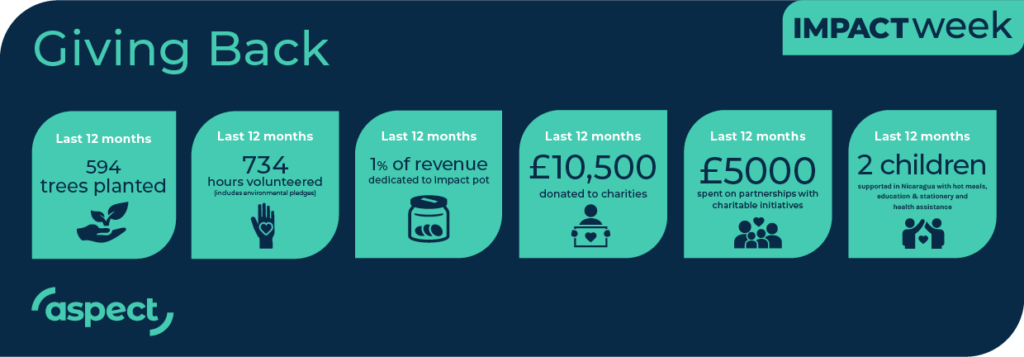Innovative MGA, Aspect has become the first IM Founder donor for the Insurance Museum (IM) which recently launched its ‘Sign the Slip’ fundraising campaign. Aspect has committed to an annual donation over the next 3 years.
The Insurance Museum is a registered charity that is focused on becoming an educational forum for engaging audiences in the global story of insurance – past, present, and future. It does this through collections of insurance heritage from private, public, and corporate archives.
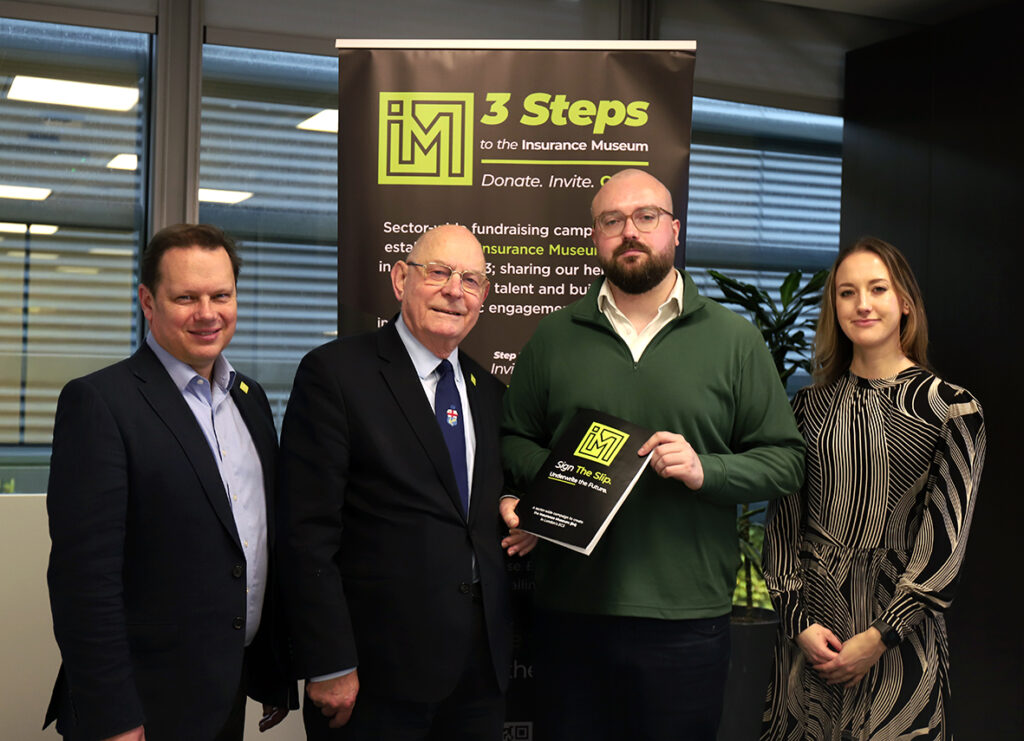
IM Director Howard Benge, IM Chairman Reg Brown, Aspect Co-Founder & CUO Oli Williamson and Aspect Deputy CEO Klaudia Sosnowska, with the IM Slip.
The museum is self-funded and relies on generous donations from the insurance profession and grants from funds and foundations. Its long-term goal is to establish a world-class visitor and research centre in the City of London, where it will exhibit collections and engage audiences in the fascinating story of insurance.
Oli Williamson, Co-Founder and Chief Underwriting Officer at Aspect says the IM project is one that is close to his heart. “I love insurance, I love history and I love London and the idea of having a permanent base, which combines all these elements is an exciting prospect for me personally. The project also closely aligns with the values Aspect holds in terms of education and promoting insurance as a great profession for all, including those who may be from more humble backgrounds. I’m delighted to show our support for the Insurance Museum and I hope many others do the same.”
IM Chairman Reg Brown said: “I’m so grateful to Oli and the team at Aspect for being the first within the insurance community to share their confidence in supporting our campaign, I’m hoping companies across the sector will follow Aspect’s lead, which is what we need to get the Insurance Museum up and running.”
IM Director Howard Benge followed up saying: “We need trailblazers like Oli who can see the potential the museum has for the sector and its future growth in terms of education and attracting talent.”
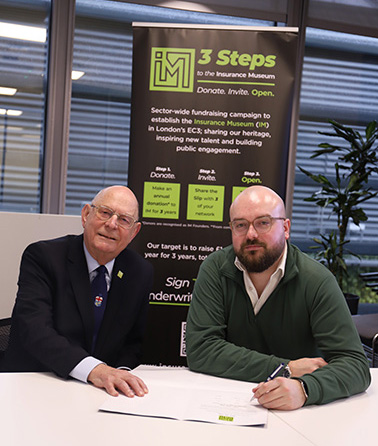
IM Chairman Reg Brown and Oli Williamson, sign the IM Slip.
Donorship levels range from Bronze to Diamond. The campaign also asks donors to nominate at least 3 others in their network to join up and donate, as part of the theme of “shared responsibility”.
Full details are on the IM campaign website: insurance.museum/slip
Donors will receive the following recognition:
- A signed letter of recognition from the IM Chair / Trustee / Director
- A personalised IM Founder certificate
- Listing on the IM Founders’ wall online and permanently in the museum
- The digital IM Founder mark for donor website and communications
- A media pack for PR and internal communications
- Invitations to exclusive previews and events
- Quarterly updates on progress toward opening
- Once the museum is open, the IM will invite all IM Founder Donors (or their representative) to sign a physical IM Slip as a lasting legacy for the sector.
Aspect is quickly becoming known as an innovative team, leading the way in considering risks that the rest of the market won’t and its continued growth and strong position at the start of 2026 speaks to the number of businesses out there who remain under-served by the wider industry.
